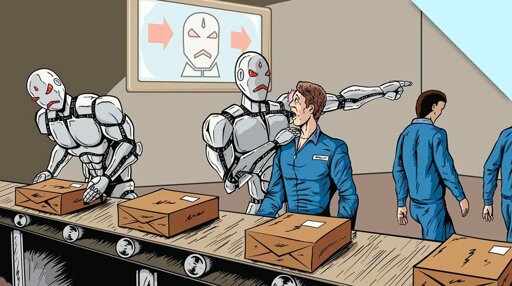Things at Tesla are worse than they appear
-
You have just argued against the article itself. Should we believe you?
The article doesn't say they've never made a profit on any of their cars. If that's what you got from that, you should try reading it again.
Also, if you make 1 billion in profit on something, and then spend 2 billion researching and developing and setting up a factory to build a new product, you end up with a loss of 1 billion. That does not mean your first thing is unprofitable. This is pretty basic stuff.
The vehicles are profitable, they just didn't provide enough profit this quarter to cover their R&D and capital expenditures for growth.
Edit: Sorry, and in case it wasn't clear, their R&D and capital expenditures dwarf the ZEV credits every quarter.
-
I get what you mean but it's still stuck at level 2 and it always will be. No matter how good it is, if you move your eyes from the road, it will eventually kill you. Cameras alone are not sufficient enough for autonomous driving.
Cameras alone are not sufficient enough for autonomous driving.
I disagree with this assertion, because they’re correct that the only being that can currently drive is relying on vision. Vision alone is sufficient for driving.
But autonomous driving really hasn’t succeeded yet. We still have no idea what is required for autonomous driving or whether we can do it at all, regardless of sensors.
So you’re implying that we can definitely do autonomous driving but can’t do it the way humans do, whereas I say we won’t know the requirements until we find some that succeed, and we may never
-
Cameras alone are not sufficient enough for autonomous driving.
I disagree with this assertion, because they’re correct that the only being that can currently drive is relying on vision. Vision alone is sufficient for driving.
But autonomous driving really hasn’t succeeded yet. We still have no idea what is required for autonomous driving or whether we can do it at all, regardless of sensors.
So you’re implying that we can definitely do autonomous driving but can’t do it the way humans do, whereas I say we won’t know the requirements until we find some that succeed, and we may never
Yeah sure. If you want the same bad results as humans deliver, in terms of crash rates, than it's possible. I wouldn't trust it. Also human vision and processing is completely different from computer vision and processing.
-
Yeah sure. If you want the same bad results as humans deliver, in terms of crash rates, than it's possible. I wouldn't trust it. Also human vision and processing is completely different from computer vision and processing.
Presumably we have the intelligence to set requirements before something can be called self-driving - that’s usually what the fuss is about, whether the marketing is claiming it’s something it’s not.
If they fail with their approach, I’m fine with that, just like I’m fine if Waymo fails with their approach. Of either succeeds, why should I care how? Obviously there’s a problem if it runs over some old lady at a stop sign and drags them down the street but that’s clearly a failure for them
-
Presumably we have the intelligence to set requirements before something can be called self-driving - that’s usually what the fuss is about, whether the marketing is claiming it’s something it’s not.
If they fail with their approach, I’m fine with that, just like I’m fine if Waymo fails with their approach. Of either succeeds, why should I care how? Obviously there’s a problem if it runs over some old lady at a stop sign and drags them down the street but that’s clearly a failure for them
Presumably we have the intelligence to set requirements before something can be called self-driving
We already have that https://www.sae.org/blog/sae-j3016-update
-
The Nazis actually made good cars. Tesla is all the worst parts without the good cars.
Volkswagens aren't that great but I get your point.
-
Volkswagens aren't that great but I get your point.
Good thing I didn't use the word great, and I'm talking about the cars they made in the 30s and 40s hence the past tense of "made."
-
Presumably we have the intelligence to set requirements before something can be called self-driving
We already have that https://www.sae.org/blog/sae-j3016-update
The thing is humans are horrible drivers, costing a huge toll in lives and property every year.
We may already be at the point where we need to deal with the ethics of inadequate self-driving causing too many accidents vs human causing more. We can clearly see the shortcomings of all self driving technology so far, but is it ethical to block
Immature technology if it does overall save lives?Maybe it’s the trolley problem. Should we take the branch that leads to deaths or the branch that leads to more deaths
-
...nah man, that's on the domestic dealers + automakers choosing not to market small affordable cars in favor of big profitable road-tanks, and it's not the first time they've priced themselves out of the market like this...
It’s a fundamental and inevitable outcome of how these businesses are structured and run. Were the decisions to chase larger more premium vehicles short sighted? absolutely. Was the pursuit of Financialization in car sales to make up for pricing out lower income buyers obviously a bad idea? Without a doubt. Could they have made any other decisions? Not without being replaced by shareholders.
The solution to this problem is not just to “kick the bums out”, these companies need to have their management and ownership restructured in a way that generates incentive structures to maintaining a stable long term market rather than quarterly revenue growth.
Some companies, like Nissan, didn’t pursue the big premium trend and they got burnt as well, largely because the trends of the rest of the market and surplus of used cars is undermining their new sales. To some extent their choice to so heavily pursue sales to fleets like rental companies didn’t help.
-
Volkswagens aren't that great but I get your point.
The original Beetle (at least the ones I worked on from the 1950s and 60s) didn't have stellar product quality, but it was well-engineered to be maintainable by someone without specialist knowledge or tools. VWAG has definitely gotten worse at quality over the following decades.
-
Not a single tesla vehicle has ever been profitable as an actual vehicle.
This honestly couldn't be further from the truth.
Tesla's vehicles once ramped have always been extremely profitable (except probably the CyberTruck as it hasn't properly ramped due to low demand)
Any losses you see are due to their aggressive growth involving capital expenditures and research and development. It's not that the vehicle isn't profitable.
The ZEV credits are just bonus money that they can then leverage to expand faster.
Edit: If you want to try and see this another way that might make sense... The Model S and X were very profitable, but they didn't make enough money to fund the expansion for the Model 3 and Y. Ditch the Model 3 and Y, and remain a boutique luxury car company, and they would posted profits instead of losses. It wasn't the cars losing money, it was the growth. The ZEV credits accelerated that growth immensely by giving them more breathing room.
Ah, so the actual reason for the loss is that they can't expand capacity without squandering vast amounts of money. That's much better.
-
Ah, so the actual reason for the loss is that they can't expand capacity without squandering vast amounts of money. That's much better.
A thing would need to officially be a flop to be considered squandered like the Cybertruck is looking like.
They might have a few failures ahead of them yet though, but you can't call a mid flight project squandered.
Edit: e.g part of that loss could be attributed to them finalizing and now starting production at the megapack factory at Shanghai. Short of Elon backlash stopping sales of their commercial batteries, that won't be squandered and will make a billion or two or three in profits this year.
-
Things are undoubtedly bad at Tesla. Its sales are dwindling. Its profits are plunging, as is its share price. There are regular protests outside its showrooms. The Cybertruck is a flop. And somehow, it’s actually a lot worse than that.
The 71% drop in net income it just reported may have been overshadowed by CEO Elon Musk’s announcement that he would be stepping back from his controversial duties at the Department of Government Efficiency (DOGE). But that drop is just one indication of serious financial sickness at the EV maker, problems brought on by falling sales for the first time in its history and falling prices for electric vehicles.
The bottom line problem at Tesla is its vanishing bottom line. A deeper look at its first quarter report shows it’s now losing money on what should be its ostensible reason for existence – selling cars.
It was only able to post a $409 million profit in the quarter thanks to the sale of $595 million worth of regulatory credits to other automakers.
But if the Trump administration gets its way, the company can kiss those regulatory credits keeping it in the black goodbye, too.








